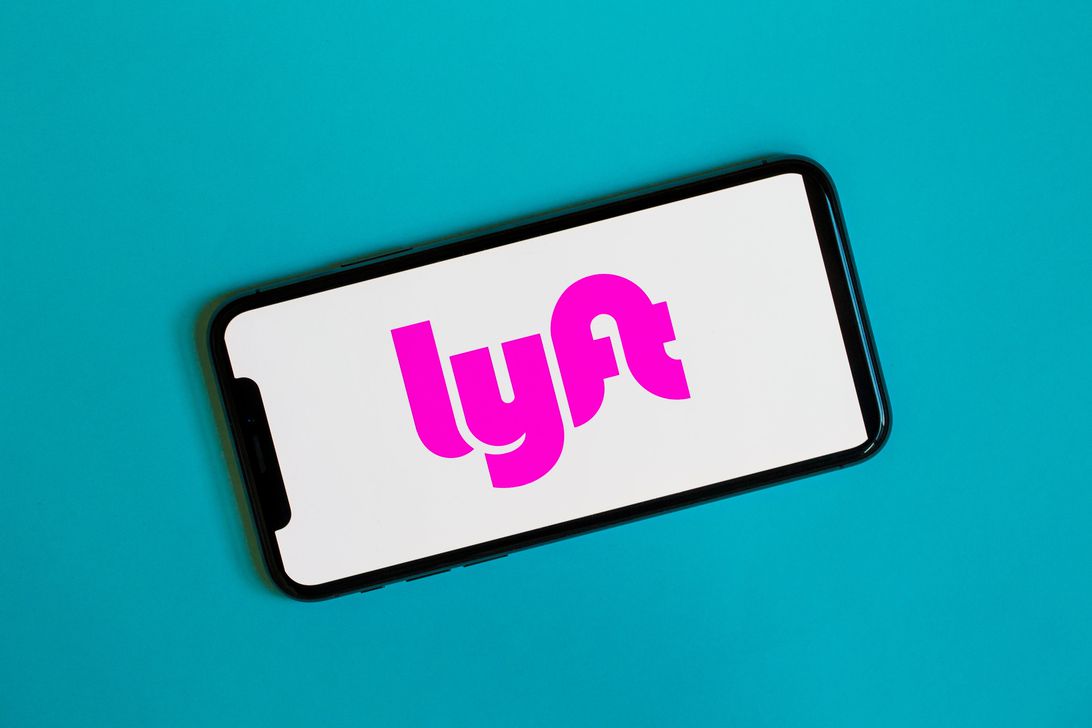Sponsored Links REUTERS/Mike Segar Uber isn’t the only one suing New York City to demand looser rules for ridesharing drivers. Lyft has sued NYC in a bid to end a rule that limits the amount of time drivers can “cruise” in Manhattan (that is, drive without passengers). The 31 percent cap on cruising time for… Continue reading Lyft sues NYC over limits on driver ‘cruising’ – Engadget
Tag: Uber
Lyft joins Uber in suing New York City over limits on cruising time – CNET
Lyft is suing New York City over a cap on cruising times. Angela Lang/CNET Lyft filed a lawsuit Friday against the city of New York over regulations that limit the amount of time drivers can cruise certain busy parts of Manhattan without a passenger. The ride-hailing company called for the Taxi and Limousine Commission’s “highly… Continue reading Lyft joins Uber in suing New York City over limits on cruising time – CNET
Uber launches boat service in notoriously congested megacity – Metro.co.uk
Uber is piloting its first-ever boat service in Lagos, Nigeria October 11, 2019 (Picture: Reuters) Uber is now piloting a boat service in one of the world’s busiest cities to attract commuters desperate to avoid its notoriously congested roads. Nigeria’s commercial capital, Lagos, is home to some 20 million people and is built on a… Continue reading Uber launches boat service in notoriously congested megacity – Metro.co.uk
Lyft follows Uber in suing NYC over cruising time caps
FILE PHOTO: A Lyft bicycle is shown at the Lyft listing on the Nasdaq during an IPO event in Los Angeles, California, U.S., March 29, 2019. REUTERS/Mike Blake/File Photo (Reuters) – Lyft Inc (LYFT.O), following its rival Uber’s (UBER.N) move, has sued New York City seeking to nullify a new rule limiting the time its… Continue reading Lyft follows Uber in suing NYC over cruising time caps
Thursday Morning Auto News, Oct 10, 2019
Nissan says European operations unsustainable with no-deal Brexit tariffs – Reuters: Nissan’s European operations, which include plants in Britain and Spain, will not be sustainable if Britain’s departure from the European Union leads to 10% tariffs on vehicles, the firm’s European Chairman Gianluca de Ficchy told reporters on Thursday.
Indicted FCA manager circulated press release about prior diesel emissions settlement – Freep: Experts say Fiat Chrysler could face more trouble because of emails that were shared among those connected to diesel emissions cheating.
BYD NEV sales volume up 34 pct in Jan-Sept – Xinhua | English.news.cn – Xinhuanet: BYD NEV sales volume up 34 pct in Jan-Sept
GM Factory Hands Making 40% Less Than Their Co-Workers Are Fed Up – Bloomberg: GM Factory Hands Making 40% Less Than Their Co-Workers Are Fed Up
Nissan to start building new Juke car at UK plant as Brexit looms – Reuters: Nissan said it will begin making the next-generation Juke vehicle at Britain’s biggest car plant on Monday, just over two weeks before a possible no-deal Brexit which the industry has warned could bring production to a halt.
BMW bets on doubling of luxury car sales to boost margins – Reuters: To lower development costs for electric and driverless cars, BMW will pursue alliances, such as a plan to make a low-cost electric car with Chinese …
BMW to Boost Sales of Gas-Guzzling SUVs to Cover Electric Shift – Bloomberg: BMW to Boost Sales of Gas-Guzzling SUVs to Cover Electric Shift
GM’s Q3 China sales slip 18% – Automotive News: The drop marks the fifth straight quarterly decline for GM in China as U.S. automakers continue to lose market share while Japanese and German automakers gain ground in the largest light-vehicle market.
Uber’s UK VAT liability confirmed – FT: Earlier this week Uber London Ltd filed its full accounts up until December 2018 at Companies House. The big news wasn’t that the division made a …
NASA boss to tour SpaceX factory after feud over capsule delays – Reuters: SpaceX Chief Executive Elon Musk opened up his private rocket factory to the top official of NASA on Thursday for a tour and progress report on the company’s long-delayed Crew Dragon astronaut capsule.
Nissan cuts role of former Ghosn aide – Nikkei:
Italdesign names Audi veteran as design chief – Automotive News: Italdesign has appointed veteran Audi executive Carsten Monnerjan as head of design. Monnerjan succeeds Filippo Perini who joined Hyundai’s …
Volvo embeds Android on its new EV – Automotive News: Volvo embeds Android on its new EV
GM’s Q3 China vehicle sales down 17.5%, as U.S. automakers cede ground – Reuters: General Motors Co’s July to September vehicle sales in China fell 17.5%, as the U.S. automaker was hurt by a slowing economy amid the Sino-U.S. trade war and by heightened competition in its key mid-priced SUV segment.
The Radical Manifesto Embraced by Google Workers and Uber Drivers – New York Times: Just before 20,000 Google employees left their desks last fall to protest the company’s handling of sexual harassment, a debate broke out among the …
Automakers, suppliers, tech companies form AV computing consortium – Automotive News: GM has invested heavily in autonomous vehicle development, especially through its Cruise unit. Toyota has also started to form alliances for …
Strengthening Renault-Nissan alliance is crucial: French minister – Reuters: Strengthening the alliance between car makers Renault and Nissan is crucial, said French junior economy minister Agnes Pannier-Runacher on Thursday, amid signs of a possible management shake-up at Renault.
Nissan Plans Shareholders’ Meeting to Vote In New Top Management – Bloomberg: Nissan Motor Co. is considering holding an extraordinary shareholders’ meeting early next year following the recent adoption of a new management …
New Volkswagen Golf design shown in official sketches – Autocar: Volkswagen Golf Mk8 sketch Eighth iteration of popular hatchback will be unveiled later
Champagne! Fur! Caviar! How St. Moritz’s Snow Polo Lures the Jet Set – Bloomberg: Photographers hoping to score a celebrity shot mill around on the edge of the runway, where a vintage Rolls-Royce and a racing-green Porsche …
Related
Uber moves into online groceries with Cornershop deal – Financial Times
Tech from Silicon Valley to Shenzhen A dedicated team of journalists follow the trillions made and lost in tech, serving crisp analysis, expert opinions and two weekly newsletters to be your guide to global tech trends and their economic impact. Go to Source Go to Source
Uber passenger says driver ‘went into rage and smashed phone’ during fare row – Bristol Post
An Uber driver allegedly flew into a rage and smacked a customer’s phone onto the ground after an alleged argument over payment. Police are investigating reports of an assault which is reported to have happened in Horfield early in the morning of Sunday, October 6. The alleged victim, a 27-year-old man, claims a driver with… Continue reading Uber passenger says driver ‘went into rage and smashed phone’ during fare row – Bristol Post
Council backs taxi drivers in Uber fight – Kent Online
Hundreds of taxi drivers watched as a local authority agreed to support legal action against Uber. At a Medway Council meeting last night at the St George’s Centre, Pembroke Road, Chatham, it was unanimously agreed steps to remove the app driven taxi service would continue. Medway Licensed Taxi Drivers Association and the Labour councillors at… Continue reading Council backs taxi drivers in Uber fight – Kent Online
Uber begins the pilot phase of its boat service in Nigeria – CNN
To attract customers who want to avoid the city’s frequently congested roads, Uber will operate a two-week pilot phase of the boat service in conjunction with the Lagos State Water Authority (LASWA) and local boat operators, Texas Connection Ferries. “We are aware of the man hours and productivity that are lost every day due to… Continue reading Uber begins the pilot phase of its boat service in Nigeria – CNN
Man’s Uber ride costs £1400 after he dozed off and woke up in the Midlands – Metro.co.uk
The customer has been left with a hefty fine (Picture: Getty/Twitter@Plastician) A man claims his Uber driver took him all the way to the Midlands from London despite him typing in his home destination as Croydon. Musician Chris Reed, who goes by the name Plastician, tweeted about the journey, which cost him more than £1400.… Continue reading Man’s Uber ride costs £1400 after he dozed off and woke up in the Midlands – Metro.co.uk



